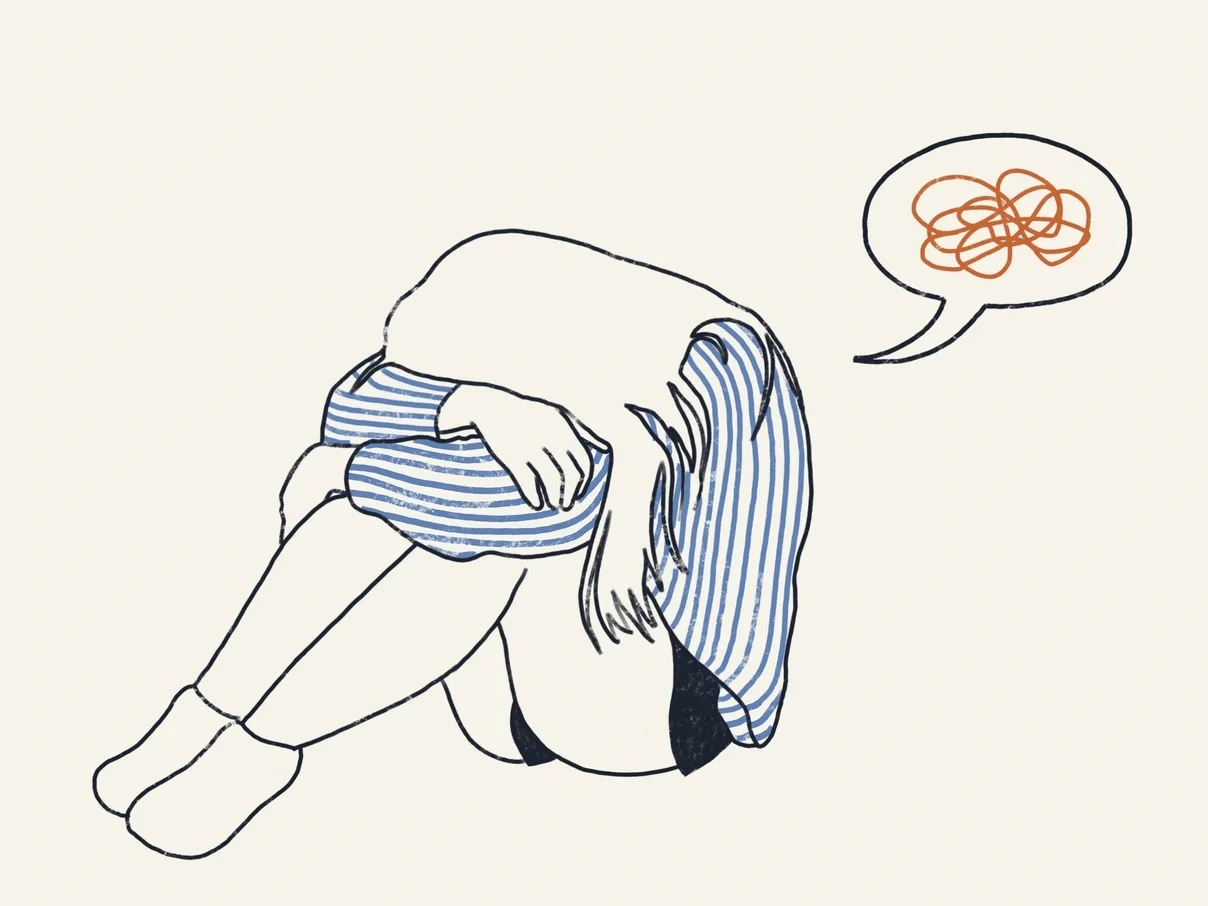Sleep Health
Published March 6, 2022
9 minManage stress with these healthy coping mechanisms
Stress is a term that most human beings are victimized with. The daily hustle and bustle of work, household chores, family, relationships, caste anxiety, etc., lead us to find solace through therapies

Table of contents
What is Coping?Coping StrategiesHealthy Coping Mechanisms to Reduce StressUnhealthy Coping Mechanisms to AvoidFrequently Asked Questions
Stress is a term that most human beings are victimized with. The daily hustle and bustle of work, household chores, family, relationships, caste anxiety, etc., lead us to find solace through therapies. Disappointments, setbacks, failures, breakups, loss, and trauma are crucial parts of life that teach us a lesson. And following that, there are healthy coping mechanisms to handle stress. Since stress is inevitable, driving that out by knowing how to manage stress is part of the game. Healthy coping mechanisms can be referred to as asking for help from friends, family, or therapists, introspecting to find solutions, and, most importantly, limiting yourself from falling into the same stress-instigating scenarios. What are healthy coping mechanisms? Healthy coping mechanisms to reduce stress are also known as adaptive coping mechanisms. These are optimistic, life-enhancing, and more vital ways of coping with stress. These approaches enable a person to reason and deal with stress more directly and empathically. Adaptive or healthy coping skills mainly involve two techniques: Emotion-focused and problem-focused.
What are healthy coping mechanisms? Healthy coping mechanisms to reduce stress are also known as adaptive coping mechanisms. These are optimistic, life-enhancing, and more vital ways of coping with stress. These approaches enable a person to reason and deal with stress more directly and empathically. Adaptive or healthy coping skills mainly involve two techniques: Emotion-focused and problem-focused.
What is Coping?
Coping is the process of incorporating conscious or unconscious approaches to control your unpleasant emotions. These are cognitive or behavioral approaches that help a person come to light from stressful instances. But, apart from all the day-to-day discussions about managing stress, there is also one psychological definition as stated by Carver (2013):“Coping is efforts to prevent or diminish threat, harm, and loss, or to reduce the distress that is often associated with those experiences.”There is more to know about stress before delving into learning about coping mechanisms to manage stress, and that is the ‘threat’ from where it all rises. A threat isn’t technically a physical one but also an emotional or mental one. Instances when we find our ego being shattered, our self-esteem hurled at, our inner beliefs and faith sabotaged, and so more. Just like many of us feel completely heartbroken after a negative answer from a loved one, or the loss of a close family member, that's when we require coping skills to handle stress.Coping Strategies
Before knowing how to develop coping skills, it is of utmost importance to understand how each approach is distinguishable from the others. Not every person is the same, as they have undergone agonies of different kinds. Therefore, quite expectedly, their coping skills for anxiety are also characteristic. Below are some strategies that contribute to healthy coping mechanisms to manage stress.- Problem-focused
- Emotion-focused
- Meaning-focused
- Social Coping
Healthy Coping Mechanisms to Reduce Stress
 What are healthy coping mechanisms? Healthy coping mechanisms to reduce stress are also known as adaptive coping mechanisms. These are optimistic, life-enhancing, and more vital ways of coping with stress. These approaches enable a person to reason and deal with stress more directly and empathically. Adaptive or healthy coping skills mainly involve two techniques: Emotion-focused and problem-focused.
What are healthy coping mechanisms? Healthy coping mechanisms to reduce stress are also known as adaptive coping mechanisms. These are optimistic, life-enhancing, and more vital ways of coping with stress. These approaches enable a person to reason and deal with stress more directly and empathically. Adaptive or healthy coping skills mainly involve two techniques: Emotion-focused and problem-focused. Emotion-Focused Coping Techniques
Healthy coping mechanisms can be very well handled by emotion-focused techniques that nurture a person to restrain their negative emotions when facing the stressor before tackling the core problem. Once they find their feelings under control, handling the situation under threat becomes pretty manageable. Emotion-focused is often considered the best coping mechanism for stress as it has a long-term effect on the person. After that, they gradually start gaining power and have space to process their emotions. The main emotion-focused healthy coping mechanisms to manage stress are:- Journaling: Whatever is troubling your mind, just write it down. Whatever the reasons, people, incidents, or more things affecting and leading to stress, you need to jot them down on a blank page. You will notice positivity and stress levels going down on regular practice.
- Yoga: Yoga is all about finding balance; through those bodily movements, you gain complete hold of yourself, especially your mind. Simply find your yoga mat, play some yoga videos, or start deep breathing exercises and notice how well you can manage your stress. While finding balance, you will see an emotional equilibrium engulfing you.
- Meditation: The act of meditation helps one acknowledge their state and thoughts, and most importantly results in mindfulness. Just let the thoughts come up, accept
- Positive Thought Process: Optimism will not resolve everything completely but it does aim at emotional well-being. Positive self-talk, identifying your success, acknowledging mistakes lightly, and more approaches are helpful.
- Forgiveness: Holding grudges never work, therefore, learn to forgive and forget. It will minimize your anger level, boost compassion, skyrocket empathy, and build stronger interpersonal relations.
Problem-Focused Coping Techniques
This one is more of a powerful act of treating stress. In the problem-focused stress coping mechanism, the person directly faces the stressor and addresses the issue. This method makes an individual feel powerful during stressful times when the situation becomes intractable. Therefore, the problem-focused technique is one of the best healthy coping mechanisms to manage stress as it helps the sufferer feel assertive. The problem-focused stress management technique doesn’t necessitate a facilitator. However, you can always opt for talk therapy if you require assistance in locating answers on your own. Problem-focused mechanisms to manage stress tend to be very effective in scenarios where the person is trying to solve the problem directly without emotionally dealing with it. There are two significant methods of managing stress by incorporating problem-focused coping techniques:- Analyzing the Topic: The person locates the reason behind the stress through this approach. They conduct an in-depth analysis of all factors contributing to the stressful occurrence. Medical issues, work issues, or family problems, whatever the core reason is - there is always a solution.
- Prepare To-Do-Lists: To-do-lists are big helpers. For people suffering from anxiety, following to-do lists will immensely control their stress. Once you know the reason causing you stress, you can write down the approaches through which you can take command of the situation. You can jot down all things to be done, and this way, you can stay ahead of time.
- Set Clear Boundaries: If you feel uneasy regarding anything, simply create a boundary where you will not be traumatized. Talk to your therapist about it, and sort ways. For instance, if you find your colleagues gossiping about other colleagues at your workplace, and that is bothering you, simply ask them not to continue with it when you’re around.
- Move Away from Detrimental Situations: If setting boundaries doesn't work, just walk out of that place, or relation, or situation, or even a job.
- Tackle the Issue: Just get done with the issue if it’s a tangible one like a problematic colleague, or abusive spouse, or whatever.
Unhealthy Coping Mechanisms to Avoid
Learning about coping skills in-depth is necessary as you never know you might be delving into a pool of problems. There are numerous harmful coping mechanisms that people find solace in, but those are jeopardizing in nature. The worst part is that these unhealthy coping mechanisms are perpetrators of more stress. Eventually, you will find yourself stranded with additional anxiety, financial strain, emotional and mental health degeneration. Let us study some unhealthy stress management mechanisms to avoid it strictly:- Acting Out: In this approach, you keep venting out in a highly negative way to release the anxiety and acknowledge the problem. This mostly happens with children.
- Avoidance: In this one, you keep on averting mental and physical signs of stress
- Denial: In this unhealthy coping mechanism to manage stress, you simply don’t acknowledge the persisting problem
- Displacement: You shift your intended action to a more secure target
- Dissociation: You gradually dissociate from parts of your life
- Distancing: You run away from the problem
- Emotionality: Extreme breakdowns and cry
- Fantasy: You escape reality to a world of delusion where everything is possible
- Help-Rejecting Complaining: You ask for help but reject it once you get it
- Idealization: Only considering the optimistic aspects of a thing and not the negative sides
- Intellectualization: You only consider the logical and interpretive aspects of the phenomenon without any consideration of emotion
- Passive Aggression: Averting refusal by passive avoidance
- Performing Rituals: You start investing in unimportant activities to not involve in the main
- Projection: Projecting your unwanted thoughts and emotions on others
- Provocation: Getting others to react so that you can retaliate
- Rationalization: You start creating reasons for your bad behavior
- Regression: You shift to a child’s mode to avert problems
- Repression: You subconsciously hide uneasy thoughts
- Self-harming: You deliberately harm your body
- Somatization: When your psychological problems affect your body
- Trivializing: Considering something trivial when it’s huge











